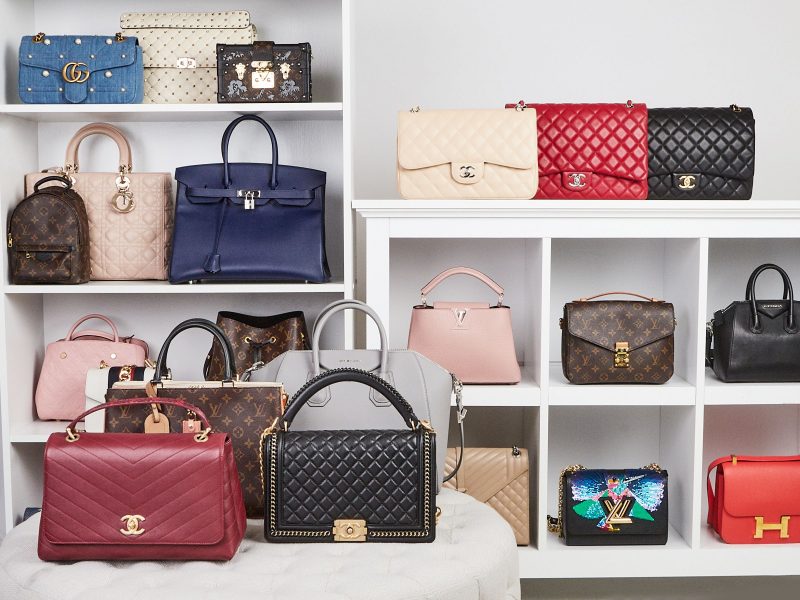
Instagram and TikTok social-media influencers Kelly Fitzpatrick and Sabrina Kelly-Krejci are among 13 defendants in a lawsuit filed by Amazon, which alleges that they participated in an an online scam to sell counterfeit luxury goods.
Counterfeit goods are strictly forbidden in the Amazon marketplace, but generic products — often called “dupes” — are allowed. A dupe may look like a designer item, but lack logos or other trademarked aspects.
Here’s how Amazon said the scheme worked: The influencers would promote items on their Instagram and TikTok accounts and point followers to an Amazon listing for a seemingly generic product. But that’s where the legitimacy allegedly ends.
“Often, the Amazon pages display only a generic, seemingly non-infringing product; the counterfeit nature of the product is revealed only to those who order and receive the product,” according to the lawsuit. “As Fitzpatrick routinely instructs her followers in social media posts: ‘Order this/Get this!’”
The lawsuit alleges the group sold a range of bootleg goods, including Gucci belts and bag knockoffs.
Here’s an Instagram post from @styleeandgrace directing followers to swipe up for a link to a generic listing on Amazon to a “trusted seller.”
Source: CourtListener.
The link led here, to a very generic version of the purse, rather than a high-quality counterfeit.
Source: CourtListener.
Here’s what investigators received, complete with a knockoff Dior keychain fob.
Source: CourtListener.
Fitzpatrick had already been booted from Amazon’s Influencer Program for selling counterfeit goods outright, according to the company’s announcement of the lawsuit. She then allegedly pivoted to this scheme to keep the sales going.
Threatpost was unable to contact either of the defendants for comment.
Counterfeit Crimes
Amazon takes selling dupes on the site very seriously. Amazon seller account terms strictly prohibit the sale of counterfeit goods. The company said in 2019 it spent more than $500 million to get counterfeit goods off the marketplace, which drive down the price of legit luxury brands and hurts big sellers.
“These defendants were brazen about promoting counterfeits on social media and undermined the work of legitimate influencers,” said Cristina Posa, associate general counsel and director, Amazon Counterfeit Crimes Unit. “This case demonstrates the need for cross-industry collaboration in order to drive counterfeiters out of business. Amazon continues to invest tremendous resources to stop bad actors before they enter our store, and social-media sites must similarly vet, monitor and take action on bad actors that are using their services to facilitate illegal behavior.”
This high-profile crackdown comes at a time when Amazon is expanding its business in the luxury retail space. The company announced the launch of Luxury Stores in September, accessible by invitation only, with its first collection from Oscar de la Renta.
Counterfeit Sellers ‘On Notice’
COVID-19 has boosted online shopping, and the market for counterfeit luxury goods along with it. In late October, the Korean Intellectual Property Office (KIPO) announced it was cracking down after a surge of bootleg goods on the market jumped by 204 percent from January to August year-over-year, Hypebeast reported.
For its part, Amazon is helping retailers keep fakes off the market with lawsuits like these to deter copycat sellers. The company also has a full time Amazon Counterfeit Crime Unit working across the globe to stop counterfeit, launched last summer.
“Every counterfeiter is on notice that they will be held accountable to the maximum extent possible under the law, regardless of where they attempt to sell their counterfeits or where they’re located,” Dharmesh Mehta, vice president of Customer Trust and Partner Support for Amazon, said at the time the unit was launched. “We are working hard to disrupt and dismantle these criminal networks, and we applaud the law-enforcement authorities who are already part of this fight. We urge governments to give these authorities the investigative tools, funding and resources they need to bring criminal counterfeiters to justice because criminal enforcement – through prosecution and other disruption measures.”